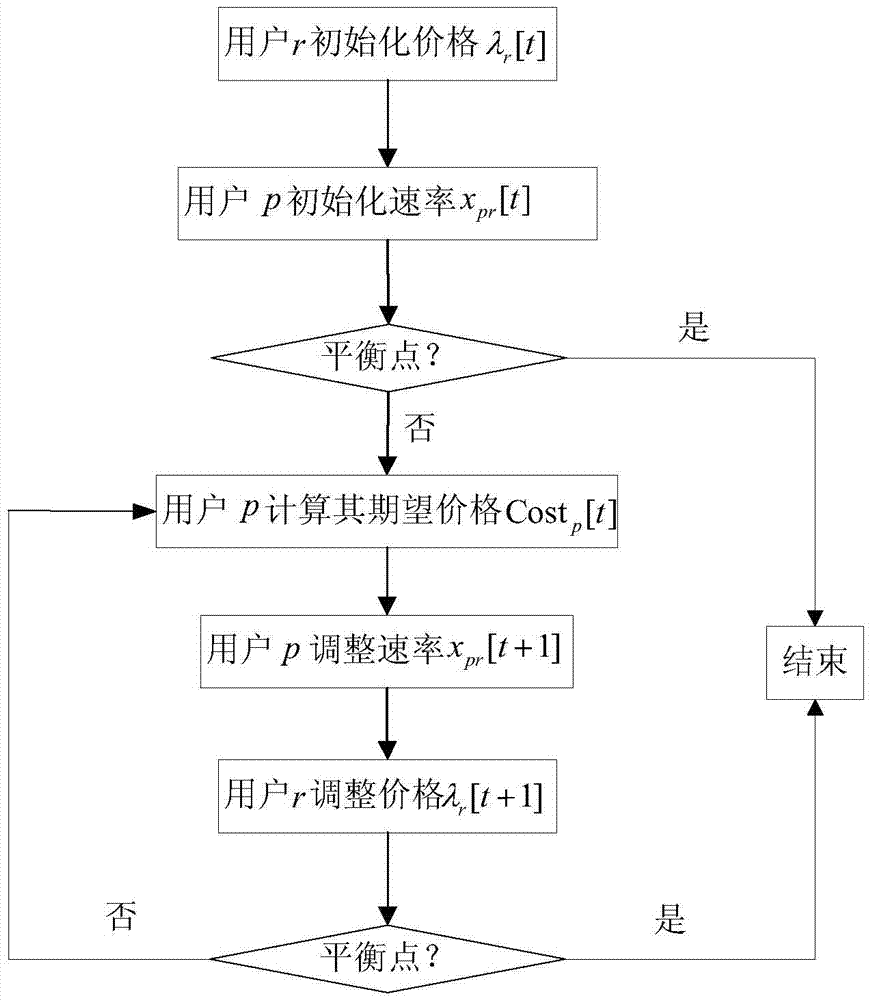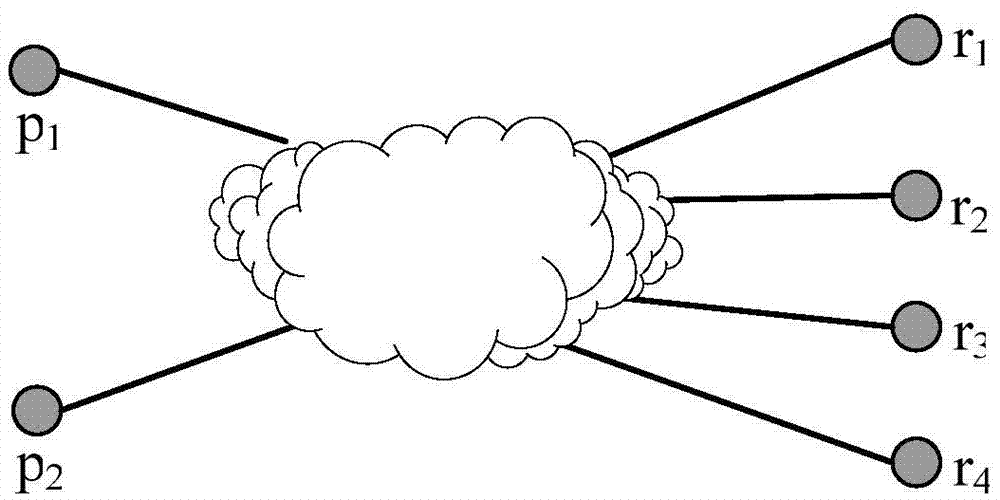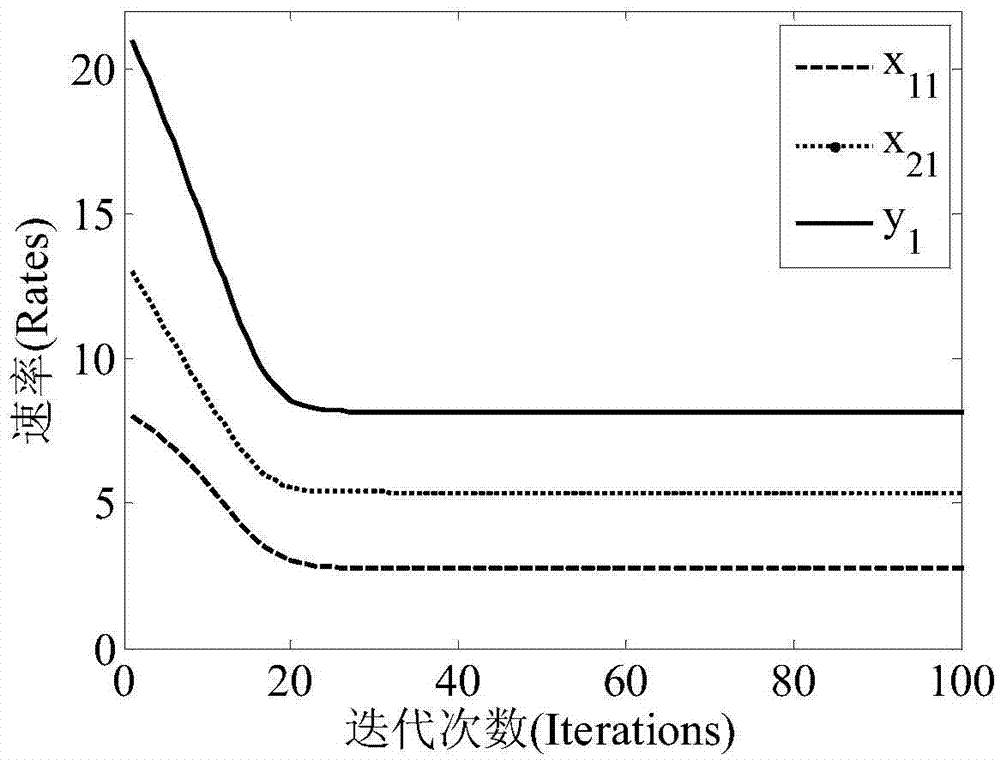P2P file sharing network bandwidth allocation algorithm based on price mechanism
A file sharing and bandwidth allocation technology, applied in the field of computer networks, can solve problems such as excessive consumption of network resources, impact on user fairness, and lack of guarantee for user fairness
- Summary
- Abstract
- Description
- Claims
- Application Information
AI Technical Summary
Problems solved by technology
Method used
Image
Examples
Embodiment Construction
[0048] The present invention will be further described below in conjunction with accompanying drawing:
[0049] The algorithm of the present invention mainly includes peer-to-peer network P2P, resource requester r, and resource provider p. In peer-to-peer network P2P, resource requester r needs to obtain the upload bandwidth of resource provider p to download files, and resource provider p according to each resource The price provided by the requester r and the expected price of the resource provider p itself allocate resource provider p's own bandwidth to the resource requester r;
[0050] Such as figure 1 As shown, the algorithm steps are as follows:
[0051] Step 1. In the peer-to-peer network P2P file sharing system, each resource requester r who wants to obtain the file download service initializes the price λ that he can provide r [t];
[0052] Step 2, the resource provider p that provides the download service performs bandwidth allocation, and initializes the allocat...
PUM
 Login to View More
Login to View More Abstract
Description
Claims
Application Information
 Login to View More
Login to View More - R&D
- Intellectual Property
- Life Sciences
- Materials
- Tech Scout
- Unparalleled Data Quality
- Higher Quality Content
- 60% Fewer Hallucinations
Browse by: Latest US Patents, China's latest patents, Technical Efficacy Thesaurus, Application Domain, Technology Topic, Popular Technical Reports.
© 2025 PatSnap. All rights reserved.Legal|Privacy policy|Modern Slavery Act Transparency Statement|Sitemap|About US| Contact US: help@patsnap.com



